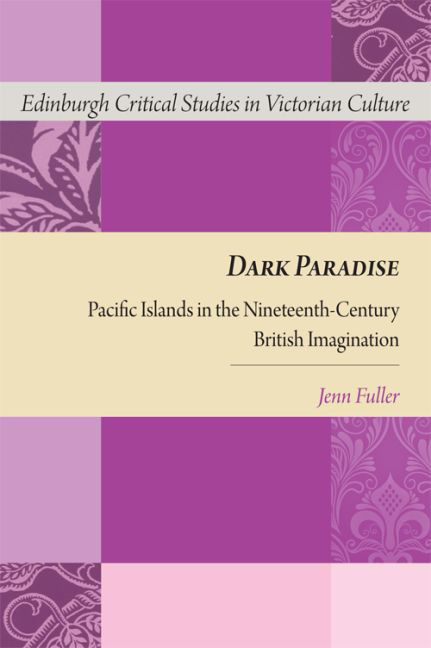Book contents
- Frontmatter
- Contents
- Series Editor's Preface
- Acknowledgements
- Introduction
- 1 Moving Missions and Novel Settlements: Early British Pacific Propaganda (1796–1866)
- 2 Adventures in the Pacific: The Influence of Trade on the South Seas Novel
- 3 Islands of Discovery: Scientific Curiosity in the Works of Darwin, Huxley and Wells
- 4 The Price of Paradise: Robert Louis Stevenson, Joseph Conrad and British Expansion in the Pacific
- 5 The Islanders Speak: Pacific Reflections in the British Press
- Bibliography
- Index
1 - Moving Missions and Novel Settlements: Early British Pacific Propaganda (1796–1866)
Published online by Cambridge University Press: 12 September 2017
- Frontmatter
- Contents
- Series Editor's Preface
- Acknowledgements
- Introduction
- 1 Moving Missions and Novel Settlements: Early British Pacific Propaganda (1796–1866)
- 2 Adventures in the Pacific: The Influence of Trade on the South Seas Novel
- 3 Islands of Discovery: Scientific Curiosity in the Works of Darwin, Huxley and Wells
- 4 The Price of Paradise: Robert Louis Stevenson, Joseph Conrad and British Expansion in the Pacific
- 5 The Islanders Speak: Pacific Reflections in the British Press
- Bibliography
- Index
Summary
Introduction
It was a strange little ship that sailed down the Thames on 10 August 1796. Instead of gruff shouts or a strain or two of a rough shanty, the passengers of the Duff sang hymns as they headed out to sea. A later account of the event by George Cousins records a confused man-of-war asking, ‘“What ship is that?” “The Duff” “Whither bound?” “Otahetie.” “What cargo?” “Missionaries and provisions.” Missionaries and provisions! What could they be? Such a cargo had never been heard of before.’ While Cousins's account is a bit histrionic, the voyage of the Duff in many ways represented a landmark moment for the British. One of the first large-scale foreign missionary efforts, the voyage featured men, women and children drawn largely from the working class and with little evangelical training. Their efforts primarily met with failure, as the missionaries were ill-equipped to deal with the people and political realities of Tahiti, Tonga and the Marquesas. Undaunted by these initial failures, however, the LMS persisted in its efforts, sending more and better trained missionaries to the small islands of the South Pacific. These outreaches eventually proved successful, both in converting islanders to Christianity and in enlarging the British presence in the Pacific. The historical reality of forays of the LMS missionaries would in turn shape the future of British adventure fiction. The excitement of finding and taming this Pacific paradise, brought to public attention by missionary narratives, would inspire novelists to create their own versions of the Pacific experience and shape the initial view of the Pacific islands for British readers.
Non-fictional narratives of the early Pacific were predominantly missionary accounts that sought to depict the British as helpful, productive Christians suffering for God in a frightening hostile environment, but fictional accounts of Pacific adventures that investigated similar themes were also beginning to gain in popularity. When William and Mary Godwin published a translation of Johann Wyss's Swiss Family Robinson in 1814, the British public devoured the text. The translation was widely adapted by British authors throughout the nineteenth century and became an example of the ‘contact’ literature Mary Louise Pratt identifies when she writes that Europe was constructing its identity ‘from the outside in, out of materials infiltrated, donated, absorbed, appropriated, and imposed from contact zones all over the planet’.
- Type
- Chapter
- Information
- Dark ParadisePacific Islands in the Nineteenth-Century British Imagination, pp. 11 - 49Publisher: Edinburgh University PressPrint publication year: 2016

